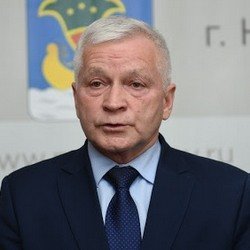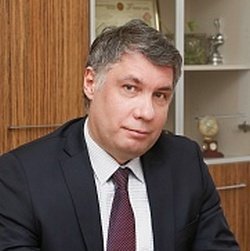‘Rabbits are not asked when they are taken to experiments’: entrepreneurs about the new tax
A tax experiment for small businesses starts in Tatarstan on July 1, but one shouldn't expect a burden relief
The Federal Tax Service of Russia has attempted to reincarnate the unified tax on imputed income (UTII), abolished 2 years ago under the universal “cry” of small and medium-sized businesses. To replace it, from July 1 Tatarstan is launching an experiment on the introduction of the automated simplified taxation system (AUSN), an improved “version” of the simplified taxation system (USN). The rate is at the level of 8% of annual income, which is by 2% higher than the current one, but in return the business will be exempt from paying insurance premiums and submitting accounting reports. Entrepreneurs doubt the effectiveness of the new tax regime, since the exemption from insurance premiums does not compensate for the increase in the tax burden. Moreover, neighbouring regions — Udmurtia and Nizhny Novgorod Oblast — offer USN at more attractive rates of 1% and 3%, respectively.
Tatarstan joins “automatically”
Tatarstan has once again become a pilot site for running in a federal experiment on taxation of entrepreneurs. After the trial testing of the professional income tax for the self-employed, the republic joined the introduction of a special tax regime for small businesses.
In 2 weeks, from July 1 of this year, the Federal Tax Service launches an information campaign on the transition to the new type of taxation — the automated simplified taxation system (AUSN). In fact, it reproduces the simplified system (USN) in force today, under which most small businesses “work”. But the only difference is that it is the Federal Tax Service who will calculate the amount of tax based on the operational data of businessmen, not the taxpayers themselves. It is for this reason that the improved version of the USN was called automated or AUSN.
Along with Tatarstan, the experiment is taking place in three more regions — Moscow, Moscow Oblast and Kaluga Oblast (by the way, in these four regions the tax for the self-employed is being tested). It will last 5 years — until the end of 2027.
Federal Tax Service will calculate the tax for you
At the start, only new small businesses with an annual turnover of no more than 60 million rubles and a staff of no more than five people, as well as individual entrepreneurs (sole proprietors), were allowed to switch to the automated simplified taxation system. But these days, the head of the Federal Tax Service of Russia, Daniil Yegorov, said that any legal entities and sole proprietors can join it.
“From July 1, 2022, it [AUSN] will work for newly registered entrepreneurs in four regions — Moscow, Moscow Oblast and Kaluga Oblast, in the Republic of Tatarstan. From 2023, simplified taxation will be extended to other sole proprietors and legal entities in these regions," Yegorov said.
According to him, the new system will allow small businesses to reduce the time for calculating taxes. “We see our mission — to make sure that neither people nor companies waste time counting taxes," he said, adding that after determining the amount of tax, the Federal Tax Service will submit it to the taxpayer for confirmation. “If they agree, if they trust, we see that everyone calculates what they offers. If he thinks it's wrong, we can correct it," the head of the Federal Tax Service promised.
Yegorov explained the expansion of the scale of the experiment by saying that “this tool has already beaten all voluntary regimes in terms of the number and user reviews”, and the tax authorities are “progressively moving towards automating this system”.
For automated maintenance — 8%
The advantage of the system is that small businesses are exempt from administration and payment of insurance premiums for the entire payroll, as well as from full maintenance and submission of accounting reports on activities, the press service of the Federal Tax Service of the Republic of Tatarstan explained to Realnoe Vremya. Instead of entrepreneurs, the tax authorities themselves will be engaged in calculating the amount of tax on the basis of data on sales of cash registers and operations on bank accounts.
The Federal Tax Service of the Republic of Tatarstan will also generate information for calculating employees' insurance premiums in the Social Insurance Fund. In other words, small businesses will be able to completely free up the accounting service that they were forced to keep after the abolition of the UTII in 2020.
However, small businesses will have to pay a little extra for automated maintenance. According to the press service of the Federal Tax Service of the Republic of Tatarstan, the tax rate for the AUSN will be 8% for the entire annual income of the entrepreneur (i.e. revenue) or 20% under the income minus expense system (i.e. profit). This is higher than in the current “simplified version”. Now entrepreneurs pay either at the rate of 6% of revenue or 15% of profit. In other words, the tax burden will be by 2% higher for revenue taxation or by 5% higher for profit taxation. At the same time, the basic conditions of the “simplified” are preserved. As before, businesses are exempt from VAT, income tax and property tax.
Plus 2%, or how much will it cost to “reset” insurance premiums
It was difficult to assess the scale of the transition to AUSN in the Office of the Federal Tax Service for Tatarstan.
“Acceptance of applications for inclusion in the experiment will begin on July 1, so it is difficult to assess future interest," the press service of the Federal Tax Service of the Republic of Tatarstan reported.
But before it began, the tax authorities held regular meetings with small businesses, helping them to calculate the economic efficiency of the transition to the new model of taxation, the department said. But it is difficult to guess how the experiment will go in practice, the tax authorities admit.
Leonid Yakunin, the head of the State Council Committee on Budget, Taxes and Finance of the Republic of Tatarstan, urges not to make forecasts, since every entrepreneur themselves will consider the benefits. “This experiment is voluntary, not forced. Businesses have the right to choose," he said.
According to him, initially the Ministry of Finance of Tatarstan estimated that about 21,000 sole proprietors and small businesses with a turnover of up to 60 million rubles fall under the criteria of the AUSN. The income from the transition of entrepreneurs to the AUSN will go to the republican budget, but in a truncated form. According to Yakunin, only 54% will go to the treasury of the region, while all 100% go under the “simplified” taxation. The total amount of tax revenues is estimated at 5-6 billion rubles. He did not assess possible losses.
One of the entrepreneurs, at the request of Realnoe Vremya, calculated that a 2% increase in the rate would lead to an increase in the tax payment by 1,2 million rubles a year, while zeroing insurance premiums for a staff of five people would save 300,000 rubles. The figures speak for themselves," he noted.
Experiment will not stop the migration of businesses to other regions
Meanwhile, the organisers of the federal experiment themselves believe that the complete zeroing of insurance premiums and administrative burden will arouse the interest of small businesses in the new tax regime. At the same time, one of the goals of the project will be achieved — the removal of gray salaries in the field of small business from the shadow.
According to entrepreneurs, the experiment may suffocate due to that the nearby regions — Udmurtia and Nizhny Novgorod Oblast — have set more attractive tax rates of 1% and 3% on annual income, which leads to migration. Tatarstan Finance Minister Radik Gayzatullin admitted at the session of the parliament that there are flows in both directions. “There are those who have left, there are those who have come," he said.
The Association of Small and Medium-sized Businesses of the Republic of Tatarstan stated that the experiment resembles an attempt to “revive” in a new form the single tax on imputed income, which was buried 2 years ago.
“We could not keep the single tax on imputed income, although we tried to do it, but we did not find understanding [from the federal authorities], [enterprises that worked under the UTII] will leave for a patent and USN," explained Tatarstan President Rustam Minnikhanov in November 2020.
Chamber of Commerce and Industry of Naberezhnye Chelny on migration: “No one left our circle”
The director general of the “Chamber of Commerce and Industry of the city of Naberezhnye Chelny of Tatarstan” Union, Farid Basharov, said that businesses of the republic know nothing about the AUSN.

According to him, experiments with the participation of our entrepreneurs are carried out quite often: they are convenient, since nothing can break them.
“If the state transfers insurance premiums for people, it is wonderful, since wages are an essential part of the economy of any enterprise. But time will tell whether businesses in Naberezhnye Chelny will go into this experiment. I see the benefit in the fact that the exemption from insurance premiums will simplify the business situation a little. But in each case, people will count," said the head of the Chamber of Commerce and Industry of the city.
According to him, migration among the Naberezhnye Chelny businesses is imperceptible. “No one left our circle and did not re-register. Why? If a business is connected with production, then it is not so easy to transfer it," he said.
Other experts share the same observations — there has not been any tangible migration of businesses from the republic. In Naberezhnye Chelny, there are 27,5 thousand entrepreneurs registered, 12,5 thousand of them are sole proprietors, a quarter are engaged in production. Everyone is trying to work under simplified taxation. “Our accounting is complicated, but the tax service says that this is not the case. It is difficult to assess the prospect of the experiment," some entrepreneurs shared.
“Nowhere without them”: three reasons to keep chief accountant
Is it really possible to get rid of the accountant with the transition to the AUSN? Individual entrepreneur Larisa Kovalchuk, a deputy in the Council of the Yamashinsky rural settlement of Naberezhnye Chelny, believes that an entrepreneur cannot do without it.
“On the one hand, an exemption from tax reporting is being announced. But what about the balance sheet? After all, legal entities still have to report the balance sheet, and no one except an accountant is able to prepare it. Secondly, all organisations have relationships with counterparties. Someone works on a full prepay basis, someone has installments and post-payment. Usually mutual settlements with them are carried out by an accountant. Of course, if turnover is small, then the entrepreneur himself will cope with this work. But if turnover is growing, the number of documents is large, who will do it? Besides, large businesses still have the obligation to submit a declaration on income tax, VAT to the tax inspectorate, as well as information about the registered person's employment and other things to the Pension Fund," Kovalchuk noted.
In addition, she continued, the salary of employees is calculated according to several components: depending on the number of working days, the amount of work performed and other things. “Here we are offered to provide all these figures to the bank, after which the banks will charge salaries. But someone has to do the main calculation for the bank. Who? Again an accountant or entrepreneur. So, one can't do without an accountant again," the businessman is sure.
According to her, there are many supporters of automation among entrepreneurs, getting rid of accountants, but “AUSN is about automation and ease of work for the tax service, for entrepreneurs themselves there is little change in the direction of automation”.
“In my opinion, an entrepreneur should calculate for himself whether the new regime is beneficial, taking as a basis the data for the last 2-3 years. It is impossible to call for a massive transition to the new regime. I don't argue that it may be beneficial to someone. But not to everyone, that's for sure.
At a rate of 8%, they will be made unprofitable
Maksim Fedorov, a member of the Tatarstan branch of the Delovaya Rossiya party, believes that the new experiment will not ease the situation of entrepreneurs working under the simplified taxation system.

The expert found it difficult to say whom the AUSN would suit, but I am sure that there are such types of businesses. Discussing the initiative with colleagues, many, according to him, expressed regret that the experiment is taking place only in these regions:
“I can't say for sure whether it's good or bad, since I didn't see a clear reasoning for the justification of this initiative. From the outside, it looks like this: we have come up with another feature, let's try it. If they had said we would reduce VAT from 20% to 13%, then a wave of revival would have swept across the country. The effect is unclear, it turns out interesting. We don't know the results of the experiment yet, but we have already decided that it is good and are preparing to scale it.
“Rabbits are not asked when they are called for an experiment," another entrepreneur shared his opinion.
Businesses are particularly wary of how the Federal Tax Service will charge taxes instead of its own accountant.
“This scheme is nuanced. It makes sense to launch a pilot experiment and see how the market behaves. I am worried about how the quarterly reporting will take place, for sure everything will be automated," says Rail Gataullin, CEO of Temle. “Optimisation of insurance premiums will improve the situation. This is an advantage. A disadvantage — small staffing. The mechanism is in theory, but there is no practice. I am planning to join the experiment.

According to experts, the cancellation of the UTII, which has been in effect for more than 20 years, has become a painful change in tax legislation, and the USN has increased the burden on businesses.